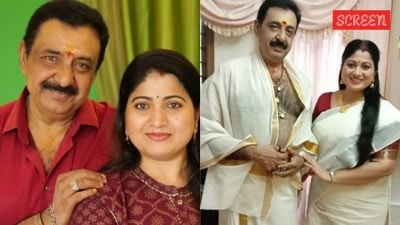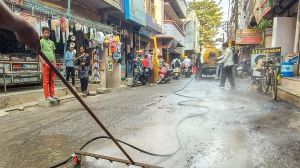Bihar will test Indian democracy
The Bihar assembly elections are scheduled to be held towards the end of February. The Election Commission EC has already paid Bihar a vis...

The Bihar assembly elections are scheduled to be held towards the end of February. The Election Commission EC has already paid Bihar a visit and announced steps that are to be taken to ensure a free and fair poll. There is to be an EC observer in each assembly segment; all anti-social elements will be apprehended; officials with blemished records will be kept away from poll duty, and so on. But many wonder how many of these measures will actually get translated on the ground. Will fair polls really take place?
Based on past experience, it seems doubtful. During the May general election too tougher measures had been announced by a team led by the CEC himself but, ultimately, what happened? Was a fair poll held? Surely not at Madhepura, from where I stood for elections as a Samata Party candidate. What I saw in this election needs highlighting in the interests of fair politics. In the first place, the system of EC observers has failed to prevent malpractice. Last time, they seemed to be so scared and their family members in Delhi, more so. They, rather unnecessarily, lost their nerve at the mere mention of being deputed to Laloo8217;s Bihar and started eating out of the hands of district officials, who, more often than not, are anything but fair.
In Madhepura, an armed gang with its headquarters in the neighboring Purnea district moved from village to village on more than 20 brand new motorcycles, with double the number of riders, all carrying semi-automatic rifles in broad daylight. They coerced voters to vote in favour of their candidate. They focused on villages inhabited by the poorest of the poor, those bordering Purnea, as also villages dominated by a particular community. Only a sort of futile, fake chase was given at one point. The men went about their business unhindered till the end of the poll. The media, in fact, reported this.
The chief observer for the EC at Madhepura, a very senior IAS officer, was informed by our people about how, at a particular spot, only Home Guards were deployed in all the four booths and there is therefore likelihood of large-scale rigging. A specific request was made to keep the armed forces at those places by me personally. But with no result. As the records showed, 80 to 90 per cent votes were cast in favour of the other candidate.
In every election, there is talk about deploying the central paramilitary forces. Their deployment, however, is decided by the district administration and herein lies the mischief. They are kept at the district headquarters on the specious ground of the need to keep a strong reserve force in prominent places 8212; which, in any case, is generally under the glare of the public and the media. The booths in the remote areas are left at the mercy of the Home Guards and state police. It is here that large-scale rigging takes place, with the full connivance of the polling staff, who are for the most part allied with the ruling party. Central observers follow a sort of conducted tour and notice nothing because everything looks orderly from the outside.
And what about VIPs? In Madhepura, the brother-in-law of an important candidate, was in overall charge. He moved about in a big convoy of vehicles, escorted by an armed force. There were no checks on him. At one place, near the sub-divisional headquarters of Uda-Kishanganj, he was intercepted by chance by an observer while engaged in rigging at a girl8217;s school. His vehicle reportedly carried liquor bottles. The observer ordered a chase but in full view of everybody he was allowed to escape: the explanation being that any action would have led to an encounter between the security forces and his own guards. The newspapers reported the entire incident but nothing happened to him. At another place near by, a state minister was caught adopting an unfair practice but, again, no action was taken.
The incidents mentioned above only indicate what happens in varying degrees all over Bihar. My intention is not to run down the EC but only to convey to it some of the ground realities. The situation in Bihar today is chaotic. The Patna High Court observed a few days ago that there was no law and order and that everything was out of control. Let us not forget that after independence the prophets of doom were proved wrong only after India conducted its first ever largely peaceful and fair poll, in 1952. On March 14, 1952, the Frankfurter Allemaigne, noted that India has achieved what even Chiang Kai-shek could not in China. The stakes in a free and fair poll in Bihar are therefore very high. It will be yet another test for Indian democracy.
The writer, a former CBI officer, is chairman of the Samata Party parliamentary board
- 01
- 02
- 03
- 04
- 05































